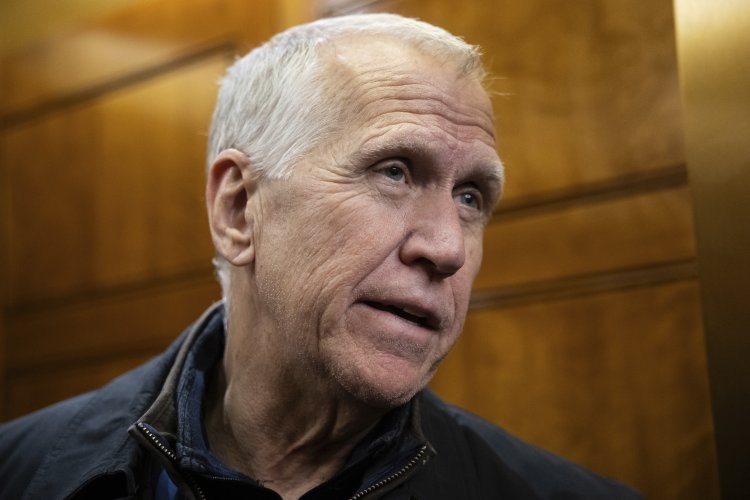Republican senators join Democrats in opposing Trump's tariffs on Canada
A defeat on the Senate floor Tuesday would mark the most substantial Republican rejection of Trump's second term.

Sen. Susan Collins announced on Monday her intention to support the resolution spearheaded by Sen. Tim Kaine, which aims to revoke the national emergency Trump declared last month, citing issues related to fentanyl trafficking and illegal immigration. Trump has cited this declaration to justify implementing 25 percent tariffs on Canada, which he intends to begin enforcing later this week.
“Imposing tariffs on Canada, which is our closest neighbor, [a] friendly ally, is a huge mistake and will cause disruption in the economies of both countries,” Collins remarked to reporters, donning both a Canadian and a U.S. flag pin on her lapel. She cautioned about possible repercussions, warning that it could lead to job losses in key industries in her state, such as lobstering, wood pulp, and the production of potatoes and blueberries.
Collins is expected to align with her GOP colleagues, including Rand Paul of Kentucky—a co-sponsor of Kaine’s resolution and a staunch critic of tariffs—and Thom Tillis of North Carolina, who has also voiced concerns regarding Trump’s tariff plans for North America. Additionally, Sen. Chuck Grassley of Iowa, representing a state where agriculture is significant, indicated he was undecided on Kaine's resolution.
While Collins indicated her support would depend on a final review of the text, she emphasized, "I agree with the intent."
For Kaine's resolution to pass, all 47 Democratic senators must approve it, and at least four Republicans would need to join. However, the resolution may not even reach a vote in the House, where Speaker Mike Johnson has moved to prevent tariff critics from forcing a vote aimed at reversing the national emergencies Trump has invoked.
Nevertheless, if the vote goes against Trump, it would mark the most substantial challenge to his authority from congressional Republicans during his second term. GOP members have generally remained compliant with his aggressive approach toward spending cuts and foreign relations.
When asked about the resolution's potential, Senate Majority Leader John Thune stated, "We'll see."
“There's concerns about tariffs on Canada and, you know, what the ultimate objective is, and if it's about fentanyl and stopping the drug trade . . . we want to give the president as much latitude as possible to deal with specific problems like that,” he added. “But, as you know, I'm in a very different place when it comes to across-the-board tariffs and Canada.”
Targeting Canada, recognized as America's closest ally, has caused significant unease among many in the GOP, and the Tuesday vote comes at a time of unrest among lawmakers and market instability sparked by Trump's aggressive trade policies. Trump's lead legislative aide, James Braid, was reportedly on Capitol Hill Tuesday trying to reassure anxious Republicans ahead of the anticipated rollout of new tariffs on Wednesday, according to Sen. Tommy Tuberville.
“We need to fight battles with our foes first and then try to figure out any inequities with our friends second," Tillis remarked. "You want to go after China, there’s not enough tariffs that could ever anger me. Canada and Mexico, that’s a little different."
Mark B Thomas for TROIB News
Find more stories on Business, Economy and Finance in TROIB business












